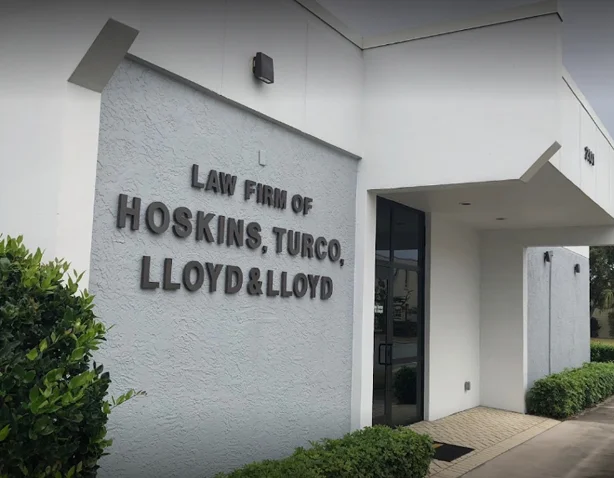Illegal street racing is no longer a problem confined to major cities — it’s made its way to the neighborhoods
Car Accident Posted on Mar 20, 2025
Insurance companies love to dangle discounts in front of drivers—especially when it comes with a catch. One of the latest trends in the industry is offering insurance safe driving programs with lower premiums to those willing to install tracking devices in their vehicles. At first glance, it sounds like an easy way to save money, but what’s really happening behind the scenes?
Before you sign up for a so-called “safe driver” program, it’s crucial to understand how these devices work and the potential downsides that could cost you more than just a few dollars. In this article, the expert car accident attorneys at Hoskins, Turco, Lloyd & Lloyd discuss how insurance safe driving programs can be used against you.

Insurance safe driving programs, often called usage-based insurance (UBI), reward drivers for practicing safe driving habits. These programs use a mobile app or a device installed in the vehicle to track driving behaviors such as speed, braking, acceleration, mileage, and time of day when driving. Insurance companies analyze this data to assess risk and determine potential discounts on premiums.
In theory, these tracking devices are designed to reward careful drivers with lower insurance costs. If you maintain smooth driving habits, avoid late-night trips, and minimize distractions, you might see a reduction in your premiums.
Sounds great, right? Well, not so fast.
While the promise of savings is tempting, insurance safe driving programs come with some serious drawbacks. The tracking devices that monitor your vehicle data and driving behaviors can be used against you. Here’s what they don’t tell you:
1. Your premiums can increase instead of decrease.
Insurance companies aren’t just looking for good driving behavior—they’re also identifying what they consider “risky” habits. If the device records hard braking, rapid acceleration, or frequent nighttime driving, your insurer may label you as high-risk and actually raise your premiums. You might start the program expecting discounts but end up paying more than before.
2. Your data could be used against you.
Insurance companies can use your driving data to assign fault in an accident. If your tracking device logs speeding or abrupt maneuvers before a crash, your insurer may use this data to reduce or deny your claim—even if the accident wasn’t your fault.
Worse yet, if another driver causes the crash but your data suggests risky driving patterns, you might have a harder time proving your innocence.
3. Privacy concerns: Who’s watching?
Many tracking devices monitor not just how you drive, but where you drive. This raises major privacy issues, especially if the data is shared with third parties. Do you really want your insurer tracking your every move and potentially selling that data to advertisers or other businesses? Want to learn more about privacy concerns, check out this consumer report here.
4. Getting out of the program can be difficult.
Once you sign up for an insurance tracking program, opting out isn’t always easy. Some insurance providers may remove your earned discounts or even impose penalties for leaving. Before enrolling, be sure you fully understand the opt-out process.
If you’re thinking about enrolling in an insurance safe driving program, here are a few things to keep in mind:
If you are enrolled in a safe driving program through your insurance company and are involved in an accident, it’s important to understand that the tracking device installed in your car will record all of the data before, during and after the accident. Therefore, we recommend taking certain steps to ensure you are protected.
While insurance safe driving programs offer potential savings, they also come with significant risks. The tracking devices give insurance companies more control over pricing and claims decisions, often at the expense of drivers. Before opting in, weigh the benefits against the downsides and consider whether the potential discounts are truly worth the trade-offs.
In the end, your driving habits should be in your hands—not in the hands of your insurance company. Stay informed, ask the right questions, and make the choice that best protects you and your wallet.
Call 866-930-6435 for a free consultation with our expert Florida car accident attorneys.
If you’ve been in an accident while enrolled in a safe driving program, your insurance company may try to use your tracking data against you. Don’t let them deny you the compensation you deserve. At Hoskins, Turco, Lloyd & Lloyd, we have over 40 years of experience fighting insurance companies—and winning. As one of Florida’s most trusted law firms, we’ve secured more than $500 million in settlements, proving that we never back down until our clients get justice.
We may be a local Treasure Coast firm, but our results rival even the biggest city firms. Insurance companies know our name, and they know when we fight for our clients, we mean business. Call us now for a free consultation—because you deserve an attorney who won’t settle for less.
Contact us today for a FREE case review by calling 866-930-6435
Illegal street racing is no longer a problem confined to major cities — it’s made its way to the neighborhoods
Recent reports reveal that automated emergency braking accidents have been happening across the United States. This “safety” technology is intended
Every driver should review their Florida auto insurance in 2025. Taking the time to reassess your policy allows you to

Phone: (772) 344-7770
Fax: (772) 344-3838

Phone: (772) 464-4600
Fax: (772) 465-4747

Phone: (772) 577-7551
Fax: (772) 794-7773

Phone: (863) 357-5800
Fax: (863) 763-2237
As the law firm Florida has trusted for over 40 years to fight on their behalf, we are more than ready to represent you. Put our experience and reputation to work. If you need help with any legal matter, whether it’s a personal injury, workers’ compensation, disability or bankruptcy case, contact us now. The consultation is absolutely free.
Get the answers you need. We’ll review your case today, for free.
"*" indicates required fields